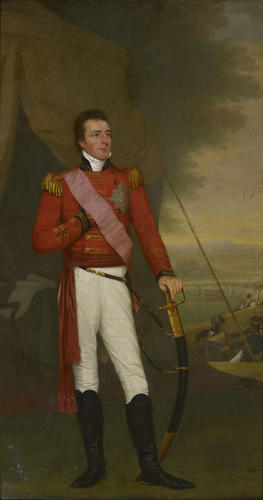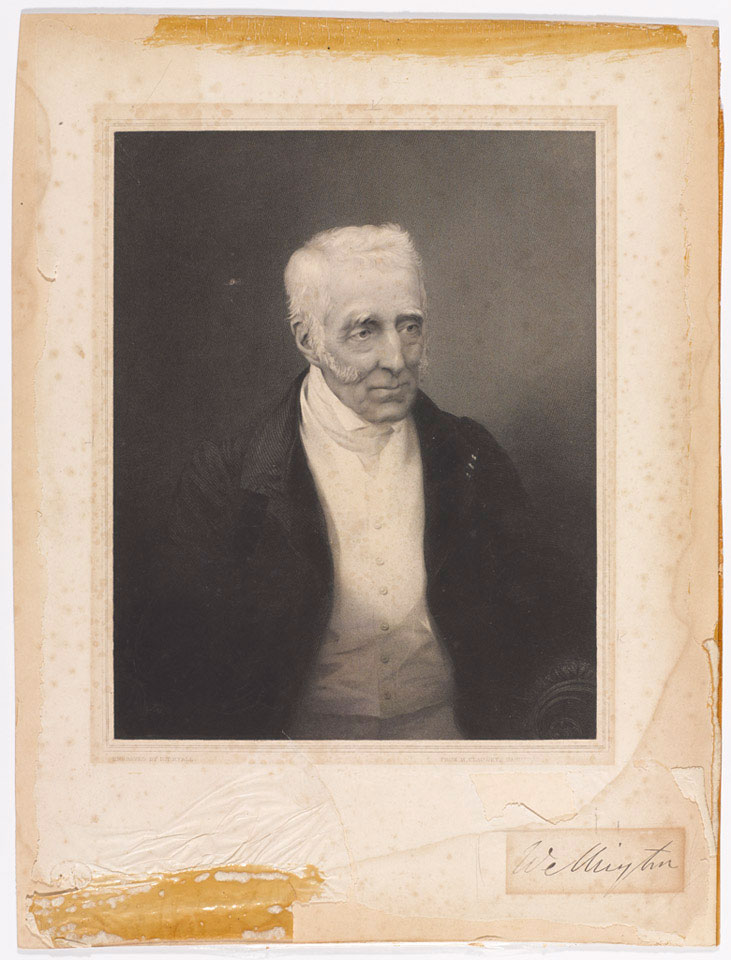Duke Of Wellington
A Brief Biography
Bicentenary F McCullough
Arthur Wellesley, 1st Duke of Wellington, born 1 May 1769 and died 14 September 1852, was a prominent British military and political figure. Best known for his role in defeating Emperor Napoleon Bonaparte at the Battle of Waterloo, Wellington would go on to serve as the Prime Minister of the United Kingdom and a prominent statesman in the 19th Century. This short article chronicles his life, military achievements, and political contributions.
Arthur Wellesley was born in Dublin, Ireland, to an aristocratic Anglo-Irish family. He attended Eton College before enrolling at the French Royal Academy of Equitation in Angers, where he developed an aptitude for horsemanship and military tactics. In 1787, he joined the British Army as an ensign and began his illustrious military career.
Wellesley quickly rose through the ranks, participating in campaigns in the Netherlands, India, and Denmark. His time in India proved particularly formative, as he honed his strategic and leadership skills during the Anglo-Maratha and Anglo-Mysore Wars.
In 1808, Wellesley was appointed to command British forces in the Peninsular War against Napoleon's French Empire. Over the course of six years, Wellesley led his troops to numerous victories, employing innovative tactics and demonstrating exceptional logistical skill. His successes earned him the respect and admiration of both his soldiers and the British public. In 1814, following the abdication of Napoleon, Wellesley was granted the title of Duke of Wellington in recognition of his military achievements.
After Napoleon's escape from exile and return to power in 1815, the Duke of Wellington was called upon to lead the British and allied forces against the French Army in the climactic Battle of Waterloo. Wellington's strategic acumen and unyielding resolve played a critical role in the coalition's victory. His forces, alongside the Prussian Army led by Field Marshal Gebhard Leberecht von Blücher, delivered a decisive blow to Napoleon's ambitions, leading to the emperor's final abdication and exile.
Following his military successes, the Duke of Wellington transitioned to a political career, serving as the British Ambassador to France and the Master-General of the Ordnance. In 1828, he became the Prime Minister of the United Kingdom, holding the position until 1830 and again briefly in 1834. During his tenure, he oversaw significant reforms, including the passage of the Catholic Emancipation Act of 1829, which granted greater civil rights to Roman Catholics in Britain and Ireland.
After retiring from politics, the Duke of Wellington continued to contribute to British public life, serving as the Commander-in-Chief of the British Army until his death in 1852. Today, the Duke of Wellington is remembered as a brilliant military tactician and an influential political figure. His steadfast leadership at the Battle of Waterloo and his contributions to 19th-century British politics have left an indelible mark on European history.
Conversation with Open AI’s ChatGPT and Edited by F McCullough, Copyright 2023 ©
Arthur Wellesley - Poem

Painting
Source: Arthur
Wellesley, later First Duke of Wellington (1769-1852) 1805 Robert
Home (1752-1834) Royal Collection Trust
Oh, let me tell you, my dear friends, of a man of mystery,
The Duke of Wellington, as he has gone down in history,
Born in Ireland, in the year of 1769,
He lived a life of duty, with courage and service, so fine.
He went to Eton, then became a fighting man,
Where he served with distinction, as an expert in game plan,
His military campaigns in India, Spain and Portugal too,
Using tactics and strategy, especially at Waterloo.
Leading the Allied Forces, he laid claim to fame,
Defeating Napoleon’s forces, making for himself a great name,
He stood against Napoleon, with a will so strong,
And he triumphed against the French, where they did not belong.
He went on to become, Prime Minister of the land,
And he served with honour, as our leader grand,
He championed reform for the poor, slow but sure,
And his legacy, in history, will forever endure.
With his courage and service, this story of the Duke,
Of Wellington and his fortitude, was no fluke,
In war he succeeded in victory, as well as in life,
His legacy lives on, having overcome much strife.
Poem by Open AI’s ChatGPT, on theme, style and edited by F McCullough, Copyright 2023 ©
Beating The Drums - Song

Steel Engraving
Source: Arthur
Wellesley, 1st Duke of Wellington, 1845 (c) by H T Ryall, 1845,
photographed by M Claudet, 1845. Published by J Watson, 1845.
On the fields of Waterloo, the battle did rage,
With swords and muskets, and the sounds of the stage,
The French and British, they fought with might,
In a battle that lasted, from day through night.
By beating the drums, for the Battle of Waterloo,
Where the sound of guns, were deafening too,
With a thrust and a shout, and a mighty cheer,
We’re retelling this story, of yesteryear.
Napoleon the Emperor with his troops, fought fierce,
British, Prussians and Allies, with sharp swords that pierce,
The battle thundered on, with such deafening rounds,
With many soldiers, left dying on the battlegrounds.
By beating the drums, for the Battle of Waterloo,
Where the sound of guns, were deafening too,
With a thrust and a shout, and a mighty cheer,
We’re retelling this story, of yesteryear.
Now let us remember, the soldiers of that day,
On the battlefield in Belgium, where dead men lay,
For victory became a turning point, which overcomes,
The awfulness of war, by rhythms of beating drums.
By beating the drums, for the Battle of Waterloo,
Where the sound of guns, were deafening too,
With a thrust and a shout, and a mighty cheer,
We’re retelling this story, of yesteryear.
Let’s beat the drums, to the brave and true,
To the soldiers who fought, with all their might too,
For the Battle of Waterloo, is a story we tell,
And its memory endures, like a hand clapping bell.
Song by Open AI’s ChatGPT, on theme, style and edited by F McCullough, Copyright 2023 ©
Book
Bicentenary F McCullough
Links
Articles
Finance
History
Duke Of Wellington A Brief Biography
Leadership
Museums
Photographs & Art Works
Artworks, Design &
Photographs Index
Other Photographs & Art Works By F McCullough
Places To Visit
Other Museums And Places To Visit
Science & Space
Other Science & Space Articles & Conversations
Poetry
Songs
External Links
Table Of Contents
Copyright
Hashtags: #BattleOfWaterloo, #Blücher, #BritishHistory,
#DukeOfWellington, #EuropeanHistory, #FrenchEmpire, #NapoleonBonaparte,
#PrussianArmy, #Warfare, #Waterloo200
Created: 21 March 2023
Published: 27 March 2023

